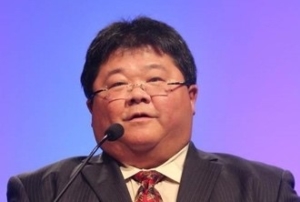Innovation through failing better – Panel Session with minimal if not zero presentations
Organizer: Peter Wung
Abstract:
The latest results from the cognitive sciences tells us that in order to motivate innovation and creative thinking we need to fail in order to learn lessons that are critical for our thinking process. We have heard the mantra of failing fast in order to learn lessons fast and then moving on to success. The assumption is that by failing faster that we would be able to get at the right success formula faster, thereby eliminating all the time spent chasing down the rabbit holes that pepper the scientific discovery landscape.
Prof. Stuart Firestein, a biology professor at Columbia University demurs. In his book titled: Failure, Firestein writes that we as scientists and engineers should be treat failure as an integral part of the process to discovery and pioneering new ground in our scientific work. In other words, we must go through the failure cycle in order to truly innovate.
Conferences like the ECCE however, only populate our programs with successful results. Likewise, the IEEE publications will only publish papers recounting the successes. These results are not the fault of the organizers as the academic and industrial communities emphasizes the successful solution, cursory explanations of errors, and successful applications. It is human nature to give only the good news; indeed, there are no small amount of embarrassment and shame associated with the act of revealing our failures and errors. As such, we are presenting an illusory and unreal snapshot of the research landscape, where every researcher succeeds in every problem they work on. We all know that this is not true, yet we will still only publish our success stories and hide our failures. By doing so, we are depriving the next generation of researcher a true accounting of the hardship, mental puzzlement, and resilient pursuit of the reasons of the failures in an innovative research and development process. More importantly, we are creating mythologies and fiction surrounding the critical and necessary process of the scientific method: hypothesis, experiment, fail, reformulate, and repeat.
Firestein narrows down the vast superset of failures by first eliminating the mistakes and errors, the simple miscalculations, those failures that often results in an apology: I am sorry I should have known that.
What is necessary are good failures, failures which feeds the discovery process, and propels the research forward. To quote Samuel Beckett: Ever Tried. Ever failed. No matter. Try again, Fail again. Fail better
Short Bio of Organizers:
 Prof. Peter Wung, is presently an adjunct professor at the University of Dayton, as well as the chair of the IEEE Smart Grid Program. He was recently appointed the Educator in Chief for Smart Grids by the IEEE Ad Hoc Committee on Lifelong Learning and Continuing Education. He has held positions of responsibilities with numerous motor manufacturing companies for almost 30 years while working on electric machine design, manufacturing, modelling, and controls. He received his PhDEE and MSEE from the Georgia Institute of Technology and the BSEE from University of Illinois, Champaign-Urbana.
Prof. Peter Wung, is presently an adjunct professor at the University of Dayton, as well as the chair of the IEEE Smart Grid Program. He was recently appointed the Educator in Chief for Smart Grids by the IEEE Ad Hoc Committee on Lifelong Learning and Continuing Education. He has held positions of responsibilities with numerous motor manufacturing companies for almost 30 years while working on electric machine design, manufacturing, modelling, and controls. He received his PhDEE and MSEE from the Georgia Institute of Technology and the BSEE from University of Illinois, Champaign-Urbana.
Speakers and presentations:
- Frede Blaabjerg. Professor, Department of Energy Technology.at Aalborg University, President of IEEE Power Electronics Society
- Jerry Hudgins, Chairperson, Department of ECE, University of Nebraska-Lincoln
- Thomas Jahns, Grainger Professor of Power Electronics and Electrical Machines, WEMPEC, University of Wisconsin
- Manoj Shah, Principal Engineer, GE GRC. Professor of Practice, RPI